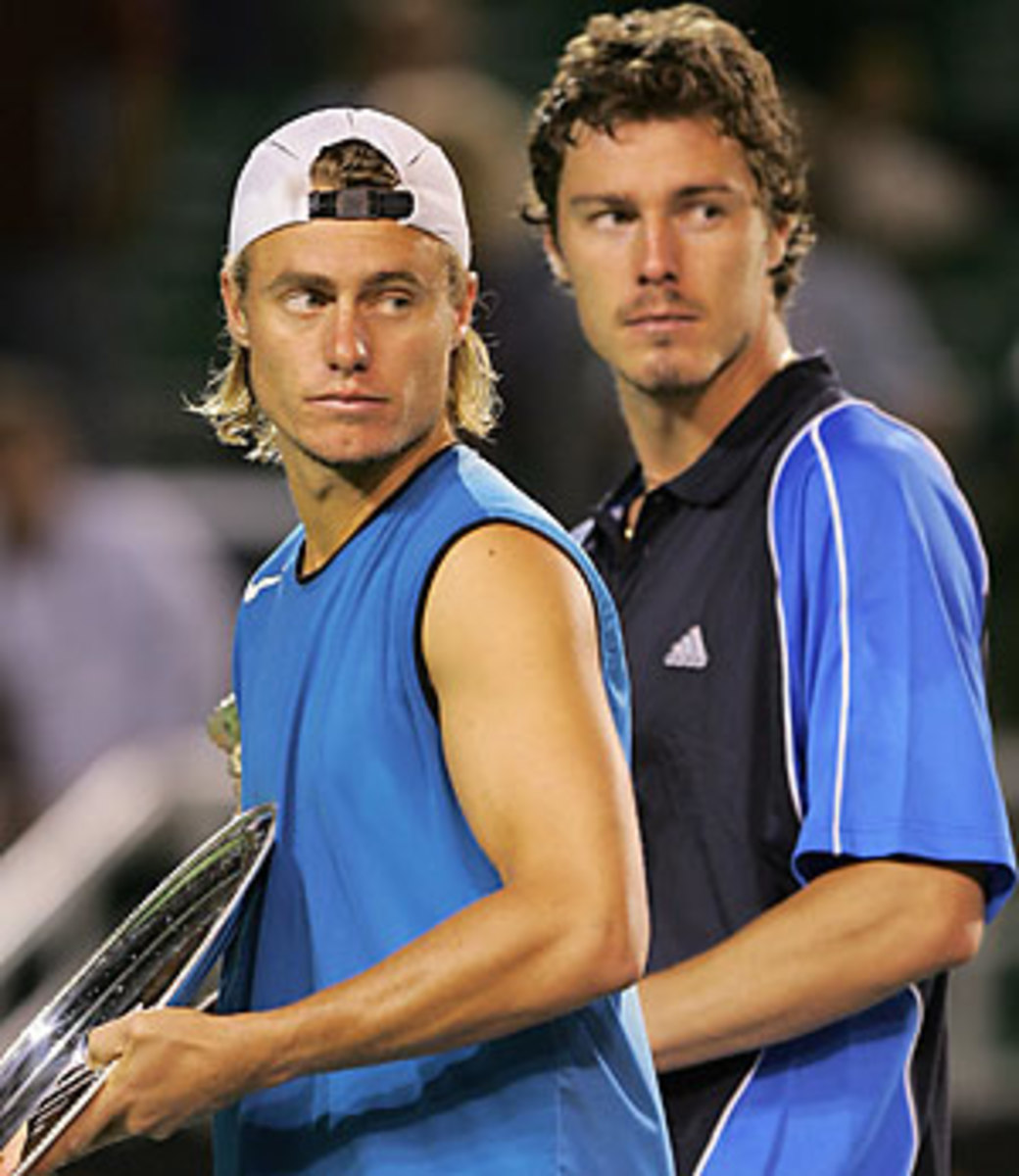Hewitt finds grace as Safin departs
NEW YORK -- Once upon a time there were two men, Marat and Lleyton. Born only a year apart, they had lots in common. They were both colleagues on the ATP Tour. They both became top players at an early age, breaking through by beating a guy named Pete in the final to win the U.S. Open. Each would win an additional Grand Slam title. They even both had a kid sister trying to make it on the women's tour.
But the similarities only went so far. Marat was tall and built solidly, a prodigious talent who hit the hell out of the ball, especially with his stop-traffic-gorgeous backhand. Lleyton stood under 6 feet and weighed 150 pounds soaking wet -- which he often was, given how sweaty he got chasing tennis balls. In the eyes of no beholder did his game contain beauty. It was all based on toil and trouble, on hustle and grit.
Marat and Lleyton had different personalities, too. Apart from looking like a model, Marat had a generous spirit. He was funny and wry and self-effacing, charming anyone crossing his path. He lived in Monte Carlo and drove fast cars and dated beautiful women, sometimes simultaneously. Even when he smashed his rackets or said things that didn't make sense -- like bashing the same tour that enabled him to make millions each year -- well, he was too endearing for anyone to notice.
Lleyton, meanwhile, conformed to the stereotype of the tennis brat. Unable to dial back his combativeness once the match ended, he picked fights with the media, with the ATP, with former agents and managers, with other players at times. If you were a carbon-based organism, odds were good Lleyton would eventually serve you with a lawsuit. As one columnist -- OK, this columnist -- once wrote, Lleyton was all "will", no "grace."
By their mid-20s, Marat and Lleyton were both losing their grip, as two new contrasting players, Roger and then Rafa, were ruling the tennis roost. But their declines owed to different factors. In Marat's case, he spoke openly of "losing motivation." The grind of the circuit was wearing him down. Besides, there were other mountains to climb -- literally, he once missed a tournament because he impetuously decided to hike in Yosemite instead. There were friends and women and beaches and pursuits that demanded less commitment than hitting a tennis ball.
Marat was still excellent when he wanted to be, capable of beating mighty Roger on a good day, as he did memorably in Australia in 2005. (He then beat Lleyton one round later.) But mostly, he slogged through his 20s, telling the world how he'd rather be somewhere else. It might have been a cop-out, but he was disarming, so few could summon much outrage.
Lleyton fell for different reasons. The body that had enabled him to win hundreds of matches began betraying him and, without the backup power generator, his game suffered. It must have been frustrating, losing to players he'd owned a few years back. But he never complained. He got married as well, which clearly brought him joy, but seemed to blunt the me-against-the-world sensibilities that fueled his early success.
It looked especially grim when Lleyton underwent hip surgery, a procedure that often sounds the death knell for a player's career. But he went through rehab and resumed playing. He entered lower-tier events to rehab his ranking. He worked harder than ever, reckoning that since he wasn't going to outhit anyone, he'd better have superior fitness. Off the court, he'd lost his peevishness --marriage will do that to a man -- and, if he still wasn't the life of the party, he was now thoroughly professional.
By the fall of 2009, Marat was finished. It was his last year on tour and instead of mounting a final hurrah, he spoke more vociferously than ever about the absent motivation. He played his final match Wednesday. A pretty good metaphor for his career, he won the first set with brilliant tennis and was then vaguely recognizable for sets two, three and four. "It's OK," he said afterward, betraying nothing resembling nostalgia. "Could have been a better ending, but still OK. ... I have no regrets."
Lleyton? Around the same time Marat lost on Arthur Ashe Stadium, Lleyton walked onto to the Grandstand for his second-round match against Juan Ignacio Chela. And he soldiers on.
No, he's not going to disrupt the Roger-Rafa duopoly. But he'll tell you that there's something worthy about competing, being in the arena, matching wills and skills against another man. While his best days are behind him, he'll still win his share of matches on guts alone. On he goes, playing as long as his body will let him. And damn if there's not grace in that.






